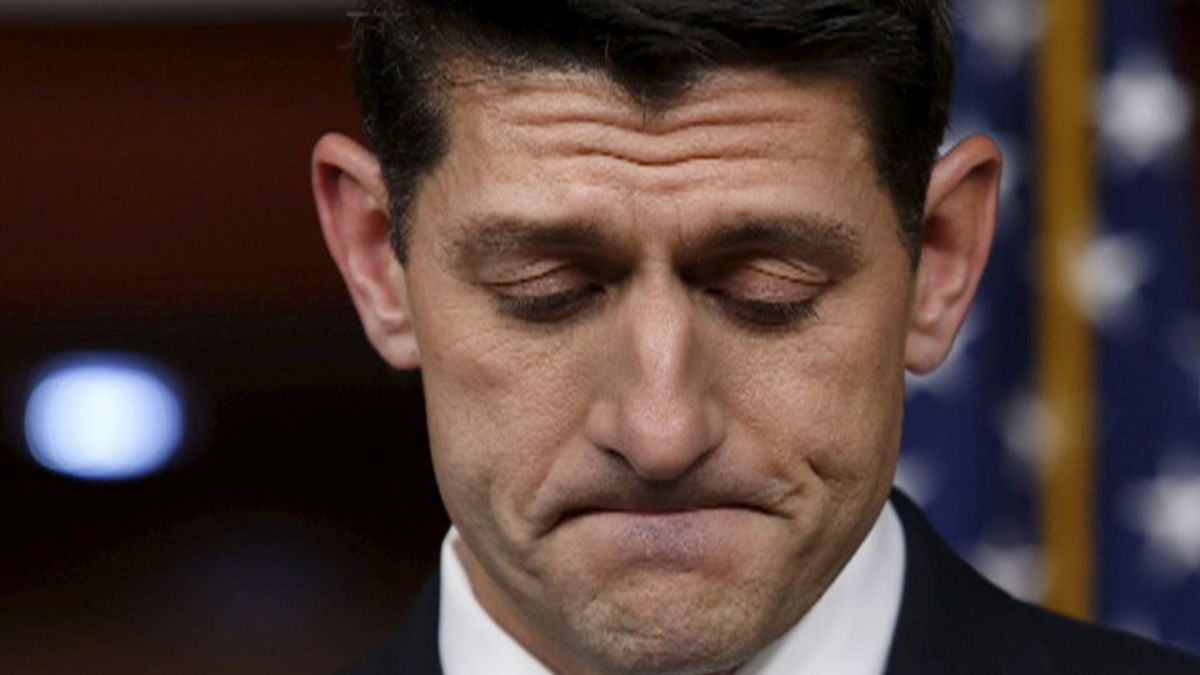At 45 years, Republican Paul Ryan is the youngest Speaker of the US House of Representatives, second in line of the president, the first hailing from the mid-western state of Wisconsin and probably the first one who did not want the job.
But it speaks to Ryan’s sense of duty and loyalty to his embattled party that he finally, after a lot of soul-searching, accepted being dragged to the gavel.
The reason is simple. No one else among the deeply divided Republicans in the House was willing to step out of the trenches and become the new leader. Ryan’s political “friends” seemed to be happy fighting against each other and forgetting about the people’s business.
When, after the surprise resignation of the hapless John Boehner in late September and the ensuing chaos within the Republican ranks, the party leadership scrambled to find a successor, Ryan’s name almost naturally came up.
Ryan was seen by many as the only viable replacement and the only possible bridge between the establishment and the hardline conservatives who had just successfully pushed Boehner out.
Initially, Ryan demurred saying several times that he was not at all interested in the job and that he wanted to spend more time with his young family. But then he gave in.
What followed was an audible sigh of relief inside the Republican majority. Ryan is popular among his colleagues, known for his intense workouts in the House gym and his disciplined, wonky enthusiasm for fiscal policy.
Despite his young age, Ryan is one the most experienced members of the Republican House caucus. He was elected nine times since 1998 and over the years emerged as his party’s most senior budget negotiator, the perfect “numbers guy”.
Yet, the American public remembers Ryan especially for being at times overwhelmed by the high-energy performance of a condescending grand uncle-like Joe Biden in the 2012 vice presidential debate.
The face-to-face with Biden was the only awkward moment for Ryan during the 2012 campaign. At the Republican convention in Tampa, he generated more enthusiasm than Obama challenger Mitt Romney.
Many of the Republican rank-and-file believed then that the political future was his, a dynamic and competent poster child conservative who would be ready and fired up to take on Hillary Clinton in 2016.
But after Romney lost to Obama, Ryan surprised many (and disappointed some) by declaring early on that he would not be seeking the Republican nomination in 2016 and staying on as chairman of the House Budget Committee instead. (He gave up that position in early 2015 to become chairman of the more powerful tax-writing Ways and Means Committee.)
Now he swapped jobs again. While in the past, he needed to build consensus with Congressional Democrats, he now needs the same quality to bring together his own caucus. Not an easy task.
The hardliners reluctantly support him, but are watching closely to see if he can really change the way things are done.
Some members of the conservative Freedom Caucus, the group largely responsible for Boehner’s decision to step down, have expressed concerns that Ryan, whom Boehner pushed to run, will be more of the same.
The group has criticized Boehner for working with Democrats and negotiating legislation behind the scenes, without input from all sides of the caucus.
Ryan secured the support of the group – one of his conditions for running – by pledging to open up the legislative process.
Entering Congress in 1998, he had similar complaints about the way Congress worked and idealistic views about limiting government.
“One of the first lessons I learned was, even if you come to Congress believing in limited government and fiscal prudence, once you get here you are bombarded with pressure to violate your conscience and your commitment to help secure the people’s natural right to equal opportunity,” Ryan wrote in a 2010 book.
He opposes abortion rights and same-sex marriage, and has a top rating from gun-rights groups. In conflict with some Republicans, though, he supported the auto industry and bank bailouts that many in the party’s right flank criticized.
But his focus has always been budget and tax policy. Ryan has said he wants to overhaul the tax code and rework the nation’s welfare system. He considered being the chairman of the Ways and Means Committee his dream job – one of the reasons he was reluctant when Republicans worked to recruit him as speaker.
Another was his family. Unlike previous, older speakers, Ryan has three school-age children and he says firmly that they are his priority. The Ryans live in Janesville, Wisconsin, on the western edge of his district that runs from the shores of Lake Michigan through farm country south of Madison.
“I cannot and will not give up my family time,” he said when he announced his candidacy for speaker, an unlikely spokesman for balancing work and personal life. His own father died when he was 16.
